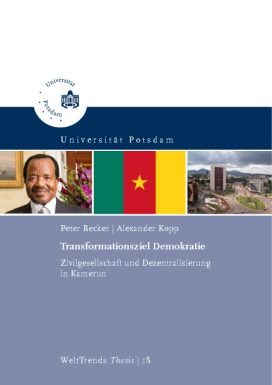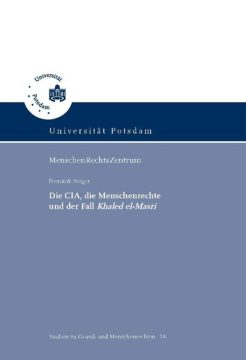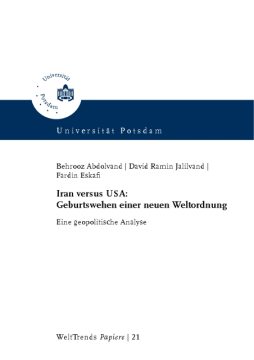After more the thirty years in office, the political career of the elderly Cameroon President Paul Biya seems to have come to an end. After gaining independence in 1960 Cameroon was quickly turned into a dictatorial police state under Paul Biya’s predecessor, Mr Ahmadou Ahidjo. A forced political liberalisation at the beginning of the 1990’s removed the existing one-party-system. However, in reality, little has changed regarding the country’s political situation as the newly granted democratic rights exist only on paper. Not only is Mr Biya the sole and unchallenged ruler of Cameroon, he is also the “glue” that binds the country together. Despite the country’s wealth of natural resources, government corruption and mismanagement has resulted in an elite with much wealth and a majority of people living in poverty. In spite of this, and even in face of ethnic and religious diversity, Cameroon is one of the most stabile countries in Africa. Civil war did not occur and Christians and Muslims live peacefully side by side. Therefore, the end of the rule of Paul Biya seems to offer both an opportunity as well as a threat to this nation’s future. The opportunity could be realized if democratically minded segments of the society succeed in installing a pluralistic regime that abolishes corruption and nepotism. In order to make this scenario more likely, western donors have begun to support the establishment of a civil society and, through decentralisation programs, strengthened the concept of democratic local self-governance. The treat is that with the disappearance of Paul Biya from the stage a dangerous political vacuum may result. As no successor seems to be in sight who is capable of leading the people and democratizing the country, there is a danger that Cameroon might follow the path of other African nations and fall into a state of turmoil and decay. This book offers an analysis of the mechanisms which have resulted in Cameroon remaining a fragile state even after fifty years of independence. At the same time – on the basis of examining the findings of transformation theories – the book explores the possibility of bringing about democratic changes to the country by critically examining the impact of the activities of the international donor community. Cameroon is often called the „Afrique en miniature“. This is why a great part of the results of this analysis are also useful for judging the political circumstances in other francophone countries in Africa. Therefore the significance of the book goes beyond the context of the situation in Cameroon.
Zivilgesellschaft und Dezentralisierung in Kamerun
ISBN: 978-3-86956-304-6
133 pages
Release year 2014
Series: WeltTrends - Thesis , 18
7,00 €
Non-taxable transaction according to § 1 (1) UStG/VAT Act in combination with § 2 (3) UStG/VAT Act a. F. Providing this service, the University of Potsdam does not constitute a Betrieb gewerblicher Art/Commercial Institution according to § 1 (1) No. 6 or § 4 KStG/Corporate Tax Act. If the legal characterization of our business is changed to a commercial institution subsequently, we reserve the right to invoice VAT additionally. zzgl. Versandkosten
After more the thirty years in office, the political career of the elderly Cameroon President Paul Biya seems to have come to an end. After gaining independence in 1960 Cameroon was quickly turned into a dictatorial police state under Paul Biya’s predecessor, Mr Ahmadou Ahidjo. A forced political liberalisation at the beginning of the 1990’s removed the existing one-party-system. However, in reality, little has changed regarding the country’s political situation as the newly granted democratic rights exist only on paper. Not only is Mr Biya the sole and unchallenged ruler of Cameroon, he is also the “glue” that binds the country together. Despite the country’s wealth of natural resources, government corruption and mismanagement has resulted in an elite with much wealth and a majority of people living in poverty. In spite of this, and even in face of ethnic and religious diversity, Cameroon is one of the most stabile countries in Africa. Civil war did not occur and Christians and Muslims live peacefully side by side. Therefore, the end of the rule of Paul Biya seems to offer both an opportunity as well as a threat to this nation’s future. The opportunity could be realized if democratically minded segments of the society succeed in installing a pluralistic regime that abolishes corruption and nepotism. In order to make this scenario more likely, western donors have begun to support the establishment of a civil society and, through decentralisation programs, strengthened the concept of democratic local self-governance. The treat is that with the disappearance of Paul Biya from the stage a dangerous political vacuum may result. As no successor seems to be in sight who is capable of leading the people and democratizing the country, there is a danger that Cameroon might follow the path of other African nations and fall into a state of turmoil and decay. This book offers an analysis of the mechanisms which have resulted in Cameroon remaining a fragile state even after fifty years of independence. At the same time – on the basis of examining the findings of transformation theories – the book explores the possibility of bringing about democratic changes to the country by critically examining the impact of the activities of the international donor community. Cameroon is often called the „Afrique en miniature“. This is why a great part of the results of this analysis are also useful for judging the political circumstances in other francophone countries in Africa. Therefore the significance of the book goes beyond the context of the situation in Cameroon.
Recommended Books
-
 2007
2007Die CIA, die Menschenrechte und der Fall Khaled el-Masri
10,00 €Non-taxable transaction according to § 1 (1) UStG/VAT Act in combination with § 2 (3) UStG/VAT Act a. F. Providing this service, the University of Potsdam does not constitute a Betrieb gewerblicher Art/Commercial Institution according to § 1 (1) No. 6 or § 4 KStG/Corporate Tax Act. If the legal characterization of our business is changed to a commercial institution subsequently, we reserve the right to invoice VAT additionally.
zzgl. Versandkosten
Add to cart -
 2012
2012Fardin Eskafi, David Ramin Jalilvand, Behrooz Abdolvand
Iran versus USA
5,50 €Non-taxable transaction according to § 1 (1) UStG/VAT Act in combination with § 2 (3) UStG/VAT Act a. F. Providing this service, the University of Potsdam does not constitute a Betrieb gewerblicher Art/Commercial Institution according to § 1 (1) No. 6 or § 4 KStG/Corporate Tax Act. If the legal characterization of our business is changed to a commercial institution subsequently, we reserve the right to invoice VAT additionally.
zzgl. Versandkosten
Add to cart -
 2006
2006Patrick von Maravic, Patricia Siebart, Kai Birkholz, Christian Maaß
Public Management – Eine neue Generation in Wissenschaft und Praxis
13,50 €Non-taxable transaction according to § 1 (1) UStG/VAT Act in combination with § 2 (3) UStG/VAT Act a. F. Providing this service, the University of Potsdam does not constitute a Betrieb gewerblicher Art/Commercial Institution according to § 1 (1) No. 6 or § 4 KStG/Corporate Tax Act. If the legal characterization of our business is changed to a commercial institution subsequently, we reserve the right to invoice VAT additionally.
zzgl. Versandkosten
Add to cart -
 2015
2015Nachhaltige Entwicklung und die Energiewende in Kuba
6,50 €Non-taxable transaction according to § 1 (1) UStG/VAT Act in combination with § 2 (3) UStG/VAT Act a. F. Providing this service, the University of Potsdam does not constitute a Betrieb gewerblicher Art/Commercial Institution according to § 1 (1) No. 6 or § 4 KStG/Corporate Tax Act. If the legal characterization of our business is changed to a commercial institution subsequently, we reserve the right to invoice VAT additionally.
zzgl. Versandkosten
Add to cart
Publisher Info
Contact
Potsdam University Library
University Press
Am Neuen Palais 10
14476 Potsdam
Germany
verlag@uni-potsdam.de
0331 977-2094
0331 977-2292





